Results
-
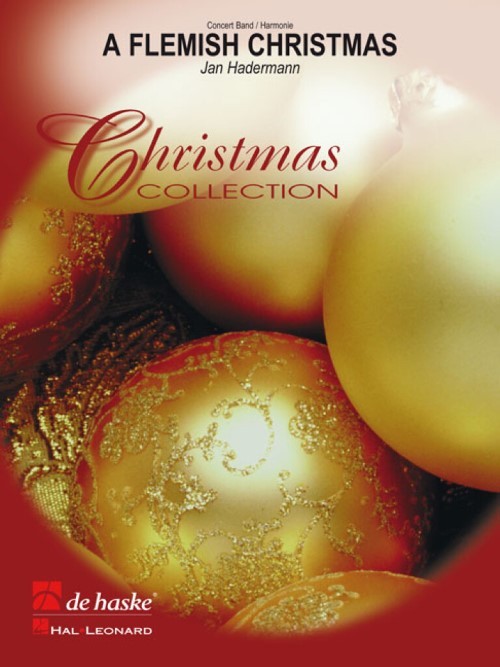 £104.99
£104.99A Flemish Christmas (Concert Band - Score and Parts) - Hadermann, Jan
In A Flemish Christmas, Jan Hadermann tells the Christmas story by means of four Old Flemish Christmas Songs. Mary is chosen to bring Jesus Christ, the son of God, into the world: Het was een maged uitverkoren ('She was a virgin chosen'). On the occasion of a census, Mary, who is with child, and Joseph, her husband to be, travel from Nazareth to Bethlehem, where Jesus will be born in a humble stable: Maria die zoude naar Bethlehem gaan (Mary would go to Bethlehem'). O kerstnacht, schoner dan de dagen ('Oh Christmas Night, more beautiful than the days') is a stately chorale that sings the praises of Jesus' birth. Three wise men from the East, Caspar, Melchior and Balthazar, follow a bright star in the sky, which leads them to Bethlehem. There, they worship the new-born King, and offer him gold, frankincense and myrrh: Wij komen van Oosten (We've come from the East'). This musical Christmas story ends with a festive repeat of the third movement, the stately chorale.Duration: 6:30
Estimated dispatch 7-14 working days
-
 £64.99
£64.99NFL Films: Music of the Gridiron (Concert Band - Score and Parts) - Brown, Michael
Any serious fan of professional American football is aware of the famous films documenting important games. As distinctive as the films themselves and their deep-voiced announcer are the classic musical themes that accompany the action. Bring the flavour of the gridiron to your next concert with this entertaining and well-written arrangement.Includes:Up She RisesThe LinemanRamblin' Man from Gramblin'Round UpLombardi Trophy Reprise
Estimated dispatch 7-14 working days
-
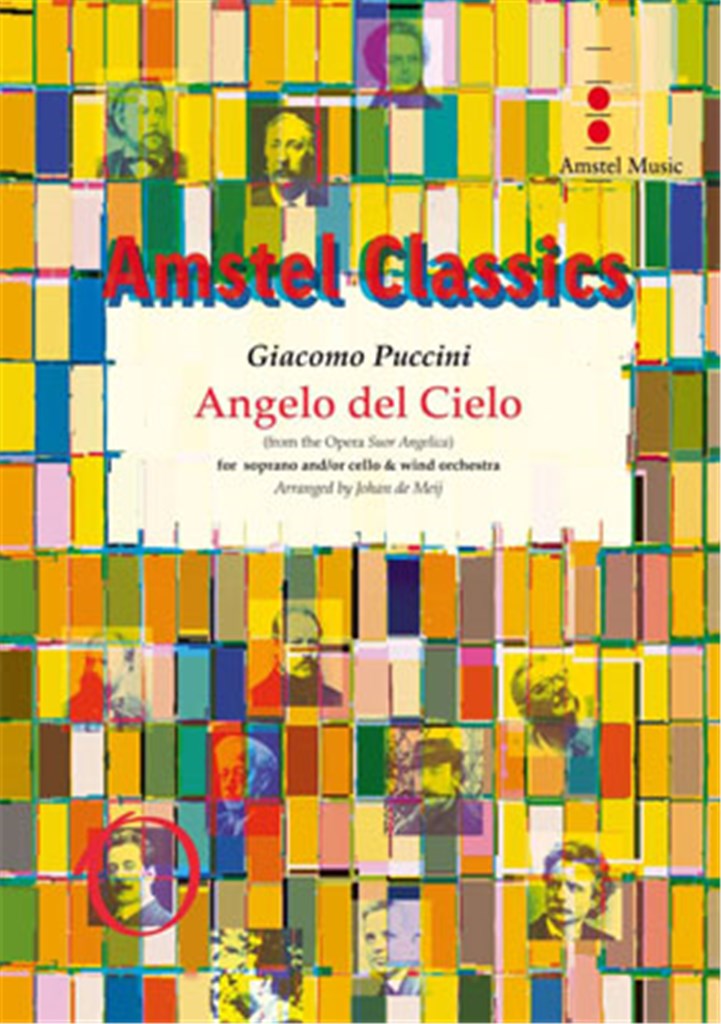 £78.00
£78.00Angelo del Cielo (Soprano or Cello Solo with Concert Band - Score and Parts) - Puccini, Giacomo - De Meij, Johan
The one-act opera Suor Angelica is set in the cloisters of an Italian convent at the end of the seventeenth century. Of noble birth, Angelica has been a nun for seven years, forced there by her family as punishment for an unknown sin. When her aunt visits her, she tells Angelica that her child had died. This terrible news becomes the reason for her only aria, Senza Mamma, a heart-wrenching song of restraint and dignity to her little 'angel in heaven' (Angelo del Cielo).The set contains solo parts, for soprano voice, cello and a duet for soprano and cello.There is also an optional solo part for trombone or euphonium.Duration: 5.00
Estimated dispatch 7-14 working days
-
 £79.99
£79.99Abbey Road: A Symphonic Portrait (Concert Band - Score and Parts) - Hearshen, Ira
The Beatles' landmark album Abbey Road was the last one recorded by the band and is considered by many to be their best. This dynamic and creative setting for band includes: Come Together, Something, Maxwell's Silver Hammer, She Came in Through the Bathroom Window, You Never Give Me Your Money and The End. Sure to become a classic!
Estimated dispatch 7-14 working days
-
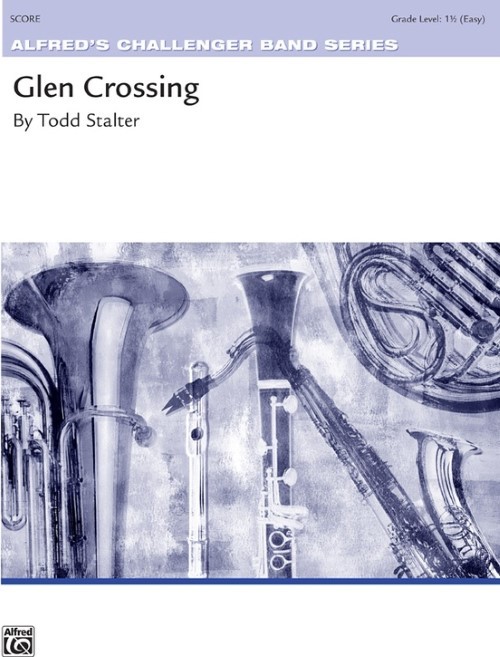 £48.95
£48.95Glen Crossing (Concert Band - Score and Parts) - Stalter, Todd
This delightful piece is the perfect opener for developing bands. Of the piece, the composer writes, "My dog loves to take walk with our son, and she is always very excited to experience anything and everything on their journeys together. Glen Crossing contains melodies that revealed themselves to me on my walks with Hershey, and hopefully it portrays the fun and joy that 'Hershey and her boy' have every day, rollicking through the neighbourhood."Duration: 2.00
Estimated dispatch 7-14 working days
-
 £50.50
£50.50Celebration (Concert Band - Score and Parts)
Madonna is back (did she ever leave?) celebrating her third greatest hit collection. Celebration is a new single from Madge's whopping 36-track collection of hits. Already a #1 hit in Europe, this chart will surely be a hit with your ensemble and audience alike.
Estimated dispatch 7-14 working days
-
 £75.00
£75.00Another Night Before Christmas (Narrator & Keyboard with Concert Band - Score and Parts) - Lane, Philip - Noble, Paul
The parody on the original poem is by England's Poet Laureate, Carol Ann Duffy, a Scottish poet and playwright. She is Professor of Contemporary Poetry at the Manchester Metropolitan University and is the first laureate to be chosen in the 21st century. The story is about a little girl who wants to see Santa Claus to prove to herself that he is real, but falls asleep at a critical moment.
Estimated dispatch 7-14 working days
-
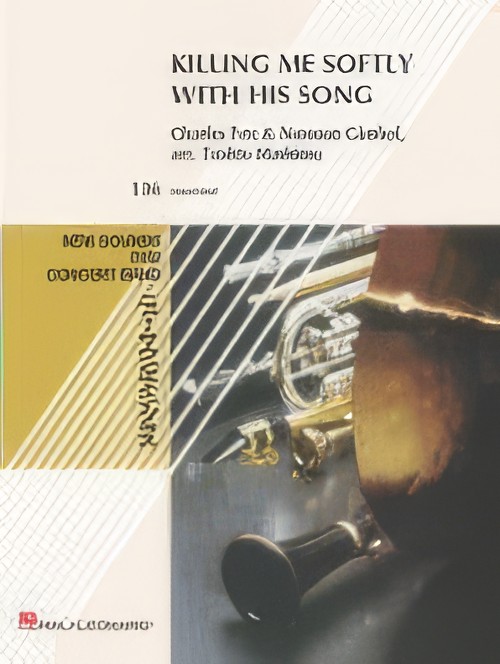 £104.99
£104.99Killing Me Softly with His Song (Concert Band - Score and Parts) - Fox & Gimbel - Mashima, Toshio
The tender ballad Killing Me Softly with His Song was written by Charles Fox and Norman Gimbel in 1971, for the American singer Lori Lieberman. She was very impressed with a performance by the then still unknown Don McLean in the Troubadour in Los Angeles. The feelings described in the lyrics are indeed those of Lieberman, but the one who, two years later, made the song world-famous was Roberta Flack. Her version won as many as three Grammy Awards. Since then, Killing Me Softly has been performed by numerous artists, including Herb Alpert, Frank Sinatra, Aretha Franklin, Anne Murray, Luther Vandross, and the Fugees.Duration: 4:00
Estimated dispatch 7-14 working days
-
 £248.99
£248.99Odysseia (Concert Band - Score and Parts) - Aulio, Maxime
Washed up on the Phaeacian shore after a shipwreck, Odysseus is introduced to King Alcinous. As he sits in the palace, he tells the Phaeacians of his wanderings since leaving Troy. Odysseus and his men fi rst landed on the island of the Cicones where they sacked the city of Ismarus. From there, great storms swept them to the land of the hospitable Lotus Eaters. Then they sailed to the land of the Cyclopes. Odysseus and twelve of his men entered the cave of Polyphemus. After the single-eyed giant made handfuls of his men into meals, Odysseus fi nally defeated him. He got him drunk and once he had fallen asleep, he and his men stabbed a glowing spike into the Cyclop's single eye, completely blinding him. They escaped by clinging to the bellies of some sheep. Once aboard, Odysseus taunted the Cyclop by revealing him his true identity. Enraged, Polyphemus hurled rocks at the ship, trying to sink it. After leaving the Cyclopes' island, they arrived at the home of Aeolus, ruler of the winds. Aeolus off ered Odysseus a bag trapping all the strong winds within except one - the one which would take him straight back to Ithaca. As the ship came within sight of Ithaca, the crewmen, curious about the bag, decided to open it. The winds escaped and stirred up a storm. Odysseus and his crew came to the land of the cannibalistic Laestrygonians, who sank all but one of the ships. The survivors went next to Aeaea, the island of the witch-goddess Circe. Odysseus sent out a scouting party but Circe turned them into pigs. With the help of an antidote the god Hermes had given him, Odysseus managed to overpower the goddess and forced her to change his men back to human form. When it was time for Odysseus to leave, Circe told him to sail to the realm of the dead to speak with the spirit of the seer Tiresias. One day's sailing took them to the land of the Cimmerians. There, he performed sacrifi ces to attract the souls of the dead. Tiresias told him what would happen to him next. He then got to talk with his mother, Anticleia, and met the spirits of Agamemnon, Achilles, Patroclus, Antilochus, Ajax and others. He then saw the souls of the damned Tityos, Tantalus, and Sisyphus. Odysseus soon found himself mobbed by souls. He became frightened, ran back to his ship, and sailed away. While back at Aeaea, Circe told him about the dangers he would have to face on his way back home. She advised him to avoid hearing the song of the Sirens; but if he really felt he had to hear, then he should be tied to the mast of the ship, which he did. Odysseus then successfully steered his crew past Charybdis (a violent whirlpool) and Scylla (a multiple-headed monster), but Scylla managed to devour six of his men. Finally, Odysseus and his surviving crew approached the island where the Sun god kept sacred cattle. Odysseus wanted to sail past, but the crewmen persuaded him to let them rest there. Odysseus passed Circe's counsel on to his men. Once he had fallen asleep, his men impiously killed and ate some of the cattle. When the Sun god found out, he asked Zeus to punish them. Shortly after they set sail from the island, Zeus destroyed the ship and all the men died except for Odysseus. After ten days, Odysseus was washed up on the island of the nymph Calypso.
Estimated dispatch 7-14 working days
-
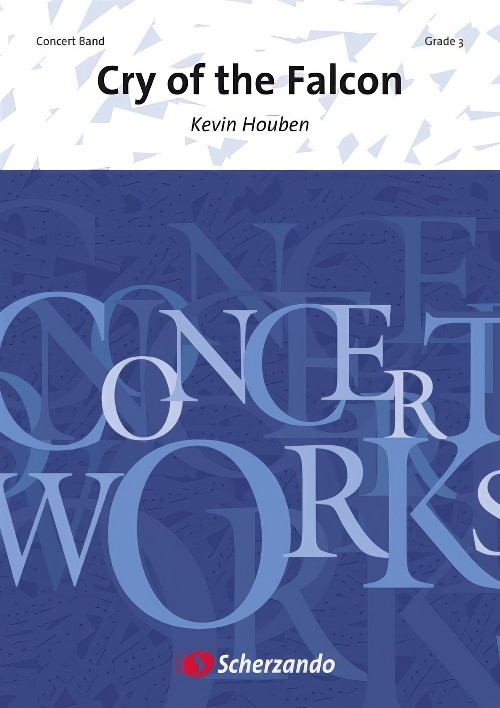 £144.99
£144.99Cry of the Falcon (Concert Band - Score and Parts) - Houben, Kevin
The Cry of the Falcon refers to the Germanic Goddess Freya, who had a cloak of feathers that gave her the ability to change into a falcon. As a falcon Freya could make her way among people. Weeping and screaming, she searched for her lost husband Odur. Power and justice are the main ideas portrayed by Kevin Houben in this lyrical concert work.Duration: 11:30
Estimated dispatch 7-14 working days
